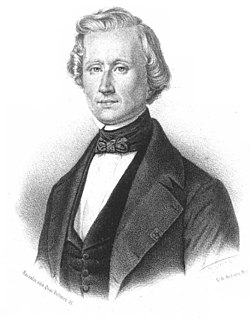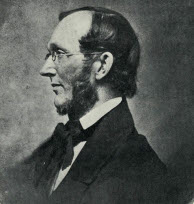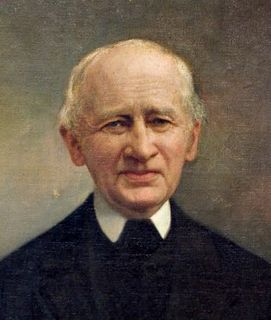A Quote by Urbain Le Verrier
This success permits us to hope that after thirty or forty years of observation on the new Planet [Neptune], we may employ it, in its turn, for the discovery of the one following it in its order of distances from the Sun. Thus, at least, we should unhappily soon fall among bodies invisible by reason of their immense distance, but whose orbits might yet be traced in a succession of ages, with the greatest exactness, by the theory of Secular Inequalities.
Related Quotes
Nearly forty years ago, a distinguished Prime Minister of this country ... said, 'They may not be angels but they are at least our friends.'* I must say that I do not think that we probably demonstrated in that forty years that we are angels yet, but I hope we have demonstrated that we are at least friends.
Thus far I have explained the phenomena of the heavens and of our sea by the force of gravity, but I have not yet assigned a cause to gravity. Indeed, this force arises from some cause that penetrates as far as the centers of the sun and planets without any diminution of its power to act, and that acts not in proportion to the quantity of the surfaces of the particles on which it acts (as mechanical causes are wont to do) but in proportion to the quantity of solid matter, and whose action is extended everywhere to immense distances, always decreasing as the squares of the distances.
At any one time there is a natural tendency among physicists to believe that we already know the essential ingredients of a comprehensive theory . But each time a new frontier of observation is broached we inevitably discover new phenomena which force us to modify substantially our previous conceptions. I believe this process to be unending, that the delights and challenges of unexpected discovery will continue always.
The simplicity of the law by which the celestial bodies move, and the relations of their masses and distances, permit analysis to follow their motions up to a certain point; and in order to determine the state of the system of these great bodies in past or future centuries, it suffices for the mathematician that their position and their velocity be given by observation for any moment in time.
Why should it be thought incredible that the same soul should inhabit in succession an indefinite number of moral bodies? Even during this one life our bodies are perpetually changing, through a process of decay and restoration; which is so gradual that it escapes our notice. Every human being thus dwells successively in many bodies, even during one short life.
Science is science. Science is what is. After discovery, tests, trial, if a consensus of scientists today said that the sun orbits around the earth, would we say that they're right simply because there is a consensus? No. Because we know the earth orbits around the sun just as if there were a consensus that the earth is flat would we agree with them? No. So there can't be a consensus on something that hasn't been proven. This is a political movement. This whole global warming thing is a political movement.
As soon as an opinion becomes common it is sufficient reason for men to abandon it and to uphold the opposite opinion until that in its turn grows old, and they require to distinguish themselves by other things. Thus if they attain their goal in some art or science, we must expect them soon to cast it aside to acquire some fresh fame, and this is partly the reason why the most splendid ages degenerate so quickly, and, scarcely emerged from barbarism, plunge into it again.
Sir, The Planet [Neptune] whose position you marked out actually exists. On the day on which your letter reached me, I found a star of the eighth magnitude, which was not recorded in the excellent map designed by Dr. Bremiker, containing the twenty-first hour of the collection published by the Royal Academy of Berlin. The observation of the succeeding day showed it to be the Planet of which we were in quest.
It's not like it's a brand new vocabulary that permits to have a new reality. It's rather a new vocabulary that lets us see that our lives have always been more complex than traditional categories allow. So, I think, you know, maybe the introduction of new words permits us to rethink what we've taken for granted about what forms bodies take, what the name is for certain kinds of sexual, intimate relations, how we think of a life.






































